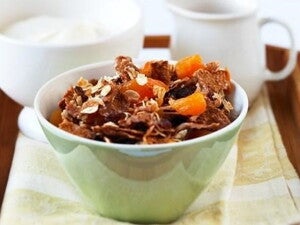
Fertility relies on various aspects of both a woman and a man’s health. Before you direct your attention to focus on finding the best fertility diet, or fertility boosting foods, it’s important to be aware that there are certain health conditions that can impact fertility too. Conditions such as polycystic ovary syndrome (PCOS), endometriosis, thyroid disorders, and reproductive organ abnormalities may need investigation by your healthcare professional or fertility expert at the start of your fertility journey for appropriate guidance and treatment. Early intervention and management of these conditions can increase the chances of a successful pregnancy. Open communication with healthcare professionals is key to understanding individual fertility factors and ensuring the best possible outcomes for conception and pregnancy.
Once you have your and your partners health checked out, let’s direct your attention to what to look for in an optimal diet to enhance your fertility and support your eventual pregnancy. There are some nutrients that are particularly important for preconception and pregnancy like folic acid, iodine and iron.
What foods should be included as part of a healthy fertility diet?
Foods high in folic acid
Folic acid (a B vitamin) is particularly important while you’re trying to conceive and at the very beginning of your pregnancy. Very early on, folic acid plays a critical role in the development of your baby’s neural tube - the beginning of their spinal cord and brain. Folic acid requirements for a pregnant woman is 600 micrograms per day, which is 50% greater than the general population.
These days, a folic acid supplement (at least 500 micrograms) is commonly recommended once you start trying to conceive (ideally for a period of four weeks before conception) as well as during the first trimester of your pregnancy.
If you did not take a folic acid supplement before or at the start of your pregnancy, don't worry. Remember that a varied and balanced diet will also provide folic acid.
Include these foods rich in folic acid:
- Vegetables, especially raw green leafy vegetables (spinach, cabbage, leek, lettuce, green beans and peas)
- Legumes (chickpeas, kidney beans, etc.)
- Fruit (especially citrus fruits like oranges, red coloured fruit, etc.)
- Nuts
- Yeast extract such as Vegemite
- Foods that have folate added to them (most breads in Australia, some breakfast cereals and fruit juices)
Foods high in iodine
Iodine is a mineral important in the normal growth and development of your baby from the beginning of your pregnancy to the end. An iodine supplement is widely recommended (150 micrograms per day) if you’re trying to conceive, during pregnancy and even while breastfeeding. Talk to your healthcare professional about your individual needs and whether supplementation may be appropriate.
Choose these iodine containing foods:
- Seafood including seaweed
- Commercially available bread made using iodised salt
- If you use salt in cooking choose iodised salt from the supermarket
Foods high in iron
When you become pregnant your body's iron needs increase, so it's good to start thinking about how you can meet your needs early on. Iron is a mineral that helps red blood cells carry oxygen to all of the other cells in your body and to your baby during development.
Iron requirements will increase during pregnancy: from 18 mg/day before pregnancy to 27 mg/day during pregnancy.
Go for these iron-rich foods:
- Lean red meat
- White meat, cooked fish
- Eggs
- Legumes
- Green leafy vegetables, e.g. spinach and broccoli
How can you boost iron absorption?
Vitamin C can help your body absorb iron from foods. For instance:
- Eat a piece of citrus fruit or kiwi fruit for dessert after a steak dinner; or
- Have a glass of orange juice after your eggs on toast for breakfast.
Your doctor will be able to identify if you have an iron deficiency through a blood test. If you are a vegetarian, or expecting twins (or more!), your doctor or dietitian may prescribe an iron supplement.
Take a look at our Baby Ready Diet infographic to see what a healthy daily fertility diet can look like.
What foods should be limited or avoided as part of a healthy fertility diet?
When it comes to optimising fertility, adopting a healthy diet is essential. While there are numerous foods that support fertility, it is equally important to be mindful of certain foods that should be limited. By understanding which foods to moderate or avoid, mums-to-be can make informed choices to support their fertility journey. Everyone’s fertility diet will look different, and the foods included in this section won’t necessarily rule out a healthy fertility – rather it is more of a guide for optimal fertility and pregnancy health.
Alcohol
The Australian government recommends that it’s safest to not drink alcohol at all, both while you’re pregnant and when you’re trying to conceive. Alcohol can affect the fertility of both men and women as well as causing potential harm to your unborn baby once you fall pregnant.
Smoking and Vaping
If you want to get pregnant, the Australian government recommends the safest option is to not smoke or vape at all. There is major concern that the chemicals in tobacco smoke and e-cigarette vapour have negative impacts on reproductive health. In women, smoking can disrupt hormone levels, affect egg quality, and damage the reproductive organs, making it more difficult to conceive. It can also increase the risk of miscarriage and ectopic pregnancy. In men, smoking can reduce sperm count, motility, and overall sperm quality. Second-hand smoke can also affect fertility. Quitting smoking is highly recommended for those trying to conceive to improve their chances of successful pregnancy and overall reproductive health.
Caffeine
Caffeine is a widely consumed substance in Australia as it’s found in so many commonly consumed drinks and foods. Caffeine can be found in coffee, tea, cola drinks, some energy drinks and chocolate. If you are pregnant or looking to get pregnant, Australian guidelines recommend limiting your intake to no more than 200mg of caffeine a day (1 cup of espresso style coffee, roughly 2-3 cups of instant coffee or 4 cups of tea). Caffeine is considered a drug, and it can cause complications such as miscarriage, or having a baby born small for their gestational age.
Added sugar and sugary drinks
Eating sugary treats in moderation is perfectly fine as part of a healthy balanced diet. However, too much sugar can impact blood sugar levels and in turn your insulin hormonal balance. High insulin in your blood through pregnancy can cause complications including gestational diabetes. The following list includes sugary drinks that you should aim to limit or cut out completely:
- Soft drink
- Sweetened iced tea
- Concentrated fruit juices
- Energy drinks
- Flavoured hot beverages with added sugar
Processed soy products
Soybeans contain phytoestrogens, hormone-like substances found in plants. These compounds imitate the effects of oestrogen, but are significantly less potent. The full physiological effects of oestrogen-like compounds are still under investigation and you should talk to your healthcare professional or fertility expert for individualised dietary advice, especially if you are vegetarian or vegan and consume a lot of soy products.
For more fertility diet inspiration check out our article ‘7 simple diet changes to consider before you get pregnant‘.
Outside of a fertility diet, what other things should I do to improve fertility?
Whilst a healthy fertility diet is important for supporting your body when trying for a baby, there are some other important health and lifestyle considerations that could help the process too:
Take multivitamins
Multivitamins are commonly consumed by women when trying to conceive as it significantly aids in ensuring that their daily nutrient needs are met. When trying to conceive and during pregnancy, there are a number of key nutrients that have higher recommended intakes, for example folic acid and iron. Specific vitamins or a multivitamin shouldn’t replace a healthy fertility diet, rather they should supplement the diet. Talk to your fertility expert or healthcare professional about whether a supplement is important for you.
Prioritise time for relaxation
Getting pregnant isn’t always a smooth road for everyone. While occasional stress is a normal part of life, prolonged stress when trying to conceive can have negative impacts on fertility. Stress can affect a woman’s menstrual cycle and ovulation, as well as sexual desire and intimacy for both men and women, all of which impact the ability to conceive. It is important to manage stress through self-care, and seeking support when needed. Here are a few techniques to try to help reduce stress when trying to conceive:
- Practice relaxation techniques
- Stay physically active
- Prioritise self-care
- Connect with loved ones
- Seek emotional support
- Consider fertility support groups
- Seek healthcare professional advice if your stress levels are getting worse or feel unmanageable.
Embrace low-intensity exercise
Exercise is an important part of keeping your body healthy, for optimum fertility and in preparation for pregnancy. Exercise may help lose those unwanted kilos which may be inhibiting your fertility; help control hormone levels including insulin; and is a great stress reliever! Talk to your healthcare professional if you plan on starting any new intensive exercise regime when trying to conceive.
Check out our trying-to-conceive tips to help get your body ready for pregnancy. Understanding your fertile window is also important in finding the optimal time when your chances of conceiving are higher.
Is there a fertility diet that men should follow ?
Like women, a man’s fertility can be affected by their diet and lifestyle. Focusing on an optimal diet, moderate exercise and making other positive lifestyle changes are important steps in improving chances of conception. Generally, like a female’s fertility diet, a balanced and healthy diet, including a possible multivitamin will be important.
Focus on consuming:
- Wholegrains
- A variety of fruits and vegetables
- Lean proteins
- Dairy foods, and
- Healthy fats e.g. omega 3 LCPUFAs
Limit the following:
- Foods high in saturated fat
- Sugary snacks and drinks
- Alcohol
Remember everyone’s nutritional needs can be slightly different so reach out to a dietitian or fertility expert to help tailor a fertility boosting diet for your unique needs.
Frequently asked questions about a fertility diet
Can diet affect fertility?
Yes, a healthy, balanced diet can positively impact reproductive health. Nutrient-rich foods such as fruits, vegetables, whole grains, lean proteins, and healthy fats, provide essential vitamins, minerals, and antioxidants that support your body’s best chance at conceiving. Maintaining a healthy weight through proper nutrition is also important, as being underweight or overweight can affect fertility. Additionally, avoiding alcohol, excessive caffeine, foods high in sugar and saturated fat, while staying properly hydrated, can contribute to optimal fertility. It is advisable to consult with a healthcare professional or a fertility specialist for personalised dietary recommendations and guidance.
Which foods increase fertility?
When it comes to fertility, it's important to maintain a balanced diet, engage in regular physical activity, and consult with a healthcare professional or a fertility specialist for personalised advice and guidance. A balanced diet that supports fertility includes eating a variety of foods from all the five food groups (Fruit, Vegetables, lean proteins, dairy, and whole grains). Additionally, stay hydrated and where necessary take a vitamin supplement to help meet additional nutrient needs, for example folic acid.
What foods to avoid for fertility?
While there are no specific foods that cause infertility, it is generally recommended to avoid alcohol and high mercury-containing fish. And limit the following for optimal fertility: Discretionary foods as they are not nutrient-dense and provide too much saturated fats, sugar, and salt. Remember, maintaining a balanced diet, managing weight, and adopting a healthy lifestyle overall are key factors in promoting fertility. It's always recommended to consult with a healthcare professional or a fertility specialist for personalised dietary recommendations based on your specific needs and medical history.
What should I eat during ovulation?
During ovulation, focus on a balanced and nutritious diet. Include foods rich in antioxidants like berries and citrus fruits. Choose foods rich in folate including leafy greens, and wholegrain bread. Consume lean proteins such as poultry, fish, and legumes. Incorporate whole grains like quinoa and brown rice for fibre and essential nutrients. Opt for healthy fats from sources like avocados, nuts, and olive oil. Stay hydrated with plenty of water. Consider foods containing zinc, such as oysters, pumpkin seeds, and lean meats. Consult with a healthcare professional for personalised advice.
What is the best diet for trying to get pregnant?
The best diet for trying to get pregnant is a well-balanced and nutritious one. Focus on consuming a variety of fruits, vegetables, whole grains, lean proteins, and healthy fats. Ensure you get adequate amounts of folate, iron, calcium, and other essential nutrients, and where necessary ask your healthcare professional about taking a vitamin and mineral supplement. Limit sugary snacks, and excessive caffeine and avoid alcohol. Stay hydrated with water and maintain a healthy weight through regular physical activity. Remember, every person's nutritional needs are different, so it's advisable to consult with a healthcare professional or a registered dietitian for personalised dietary recommendations and guidance.
Sources:
- Australian Government Department of Health and Aged Care Website. Accessed at https://www.health.gov.au/resources/publications/nutrition-advice-during-pregnancy?language=en
- The Australian Dietary Guidelines. Accessed online at https://www.eatforhealth.gov.au/sites/default/files/files/the_guidelines/n55h_healthy_eating_during_pregnancy.pdf
- Food Standards of Australia & New Zealand. Accessed online at https://www.foodstandards.gov.au/consumer/nutrition/pregnancy/pregnancy-and-healthy-eating






